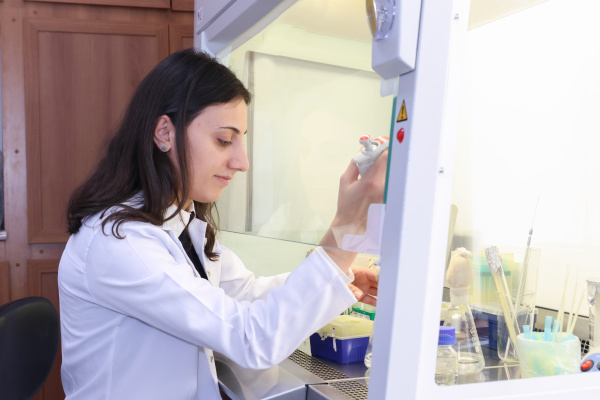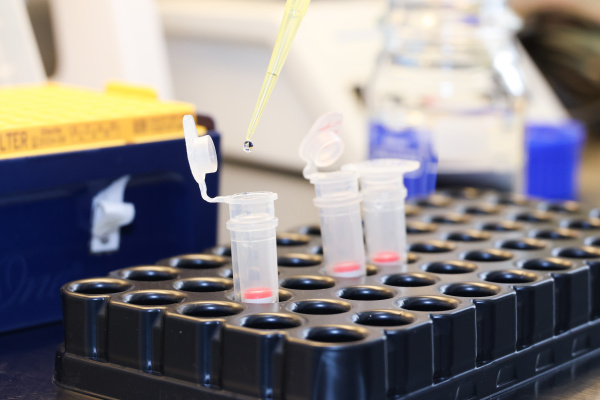Postgraduate student of the Chair of Biochemistry, Microbiology and Biotechnology at the YSU Faculty of Biology Sona Nikolyan, is conducting a scientific study on the topic "The Role of Bioenergetics in the Mechanisms of Metal Resistance in Bacteria". She is one of the winners of the "Research Assistance Program for Young Applicants and PhD Students - 2023" announced by the Higher Education and Science Committee of RA MoESCS.
Sona Nikolyan talked about the significance of the topic, scientific study, as well as the opportunities for engaging in science provided by YSU.
The topic is relevant and has practical significance.
In Armenia, the mining industry is mainly focused on the extraction of iron, copper, lead, gold, silver and aluminum. The large number of heavy metals in tailings often leads to metal resistance in bacteria, and tailings become microbial habitats. Among the various approaches to the removal of heavy metals, bioremediation stands out as an environmentally friendly option, which is also in the scope of our study.

Currently, I am researching…
As part of my research, I am studying the relation between the resistance, growth and bioenergetic properties of Arthrobacter sp.Arst.1-2, the most resistant strain to heavy metals, isolated and identified from the Artsvanik tailings. To evaluate the effectiveness of heavy metal resistance in this strain, I will perform a comparison with well-characterized H2 oxidizing as well as heavy metal resistant bacterial (R.metallidurans CH34 և C.necator H16) strains. I will also study the relation of metal resistance in case of the metabolism of different carbon and H2 sources.
Aim of the research
I am trying to find the fundamental mechanism that may be used later for bioleaching, bioaccumulation and neutralization of metals. The aim is to achieve the result that will ensure the least possible losses in production, that is, to find out how to recover the leftover heavy or precious metals from the production waste after production.

YSU has a favorable environment for engaging in science.
The university laboratories are replenished with modern equipment and a favorable environment has been created for conducting scientific studies. Now even students younger than me are actively involved in various research activities. This kind of engagement and general enthusiasm drives us to do more every day. I also attach importance to the effective work with the teaching staff. My scientific supervisor is Associate Professor Anna Poladyan, Head of the Chair of Biochemistry, Microbiology and Biotechnology, who always supports me with her advice. Even small professional hints help to see different ways of solving a problem. Communication with colleagues, experienced specialists and researchers, participation in conferences are of pivotal importance for learning new things and applying them in practice later.
Science strengthens your will. Keep on trying, don't get discouraged if you don't succeed and keep working until you get the desired results. Engaging in science is a way of life.
Emilya Hosyan


